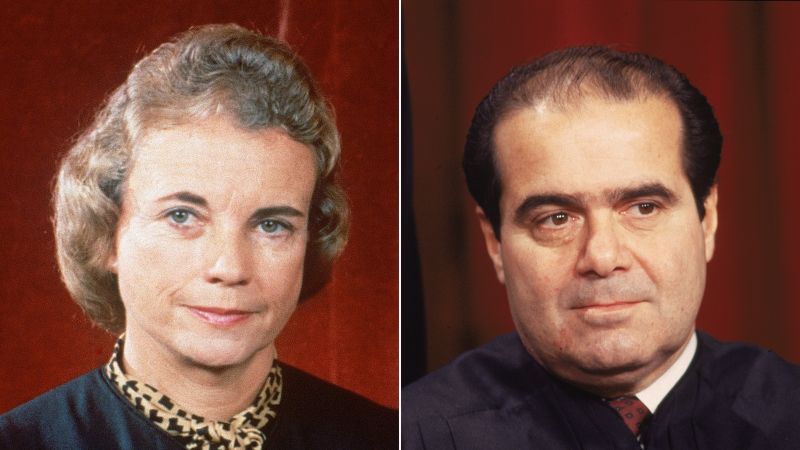
The inside story of how Sandra Day O’Connor rebuffed pressure from Scalia and others to overturn Roe v. Wade
CNN
During much of the 1980s, Justice Sandra O’Connor, the first woman on the Supreme Court, cast a consistent vote against abortion rights. That changed in 1989.
During much of the 1980s, Justice Sandra O’Connor, the first woman on the Supreme Court, cast a consistent vote against abortion rights. But in 1989, things changed. A new conservative majority was in place and appeared to have the votes to eviscerate Roe v. Wade, for the first time since the 1973 landmark made abortion legal nationwide. O’Connor struggled with the new dynamic. Some of her ambivalence emerged in her opinions, but newly available correspondence and handwritten notes of secret deliberations reviewed by CNN flesh out her budding resistance. They show her evolution in a Missouri abortion case, as she faced pressure to cast the decisive vote that would have reversed Roe and instead set a path that preserved abortion rights for another three decades. The O’Connor archive demonstrates how the nine Supreme Court justices, both then and now, negotiate behind the scenes through memos, personal entreaties, and various means of persuasion — some more successful than others. At times, the papers show, pressure on individual justices can have the opposite of the intended effect. The documents also underscore the difference on abortion rights between the court of that era and the contemporary far-right bench, which in 2022 jettisoned Roe and nearly a half century of reproductive rights. Pressing for reversal of Roe and pushing hard on O’Connor were Justice Antonin Scalia, relatively new to the bench but already known for a forceful, if sometimes bullying, presence; and Chief Justice William Rehnquist, one of the original two dissenters in Roe.

Andrew Cuomo and Zohran Mamdani bitterly clashed over age and experience Thursday in the final debate before New York City’s Democratic mayoral primary, as Cuomo warned that electing the progressive state assemblyman is unprepared for the job and Mamdani hammered the former governor over scandals during his time in Albany.

On Wednesday, the Department of Homeland Security posted a striking graphic on its official X account. Uncle Sam, a symbol of American patriotism, is depicted nailing a poster to a wall that reads, “Help your country… and yourself.” Written underneath the poster is the sentence, “REPORT ALL FOREIGN INVADERS,” and the Immigration and Customs Enforcement hot line.





















 Run 3 Space | Play Space Running Game
Run 3 Space | Play Space Running Game Traffic Jam 3D | Online Racing Game
Traffic Jam 3D | Online Racing Game Duck Hunt | Play Old Classic Game
Duck Hunt | Play Old Classic Game









